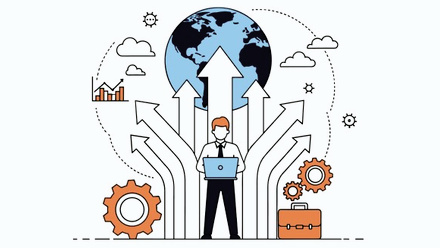4 ways employee expectations are shifting global benefits strategy
The global economy and business environment is continually changing and along with it employee expectations. Increasingly, the benefits employees expect from their employer reflect what is happening in the world.
As companies face challenges including inflation, talent shortages and growing concerns around employee wellbeing, understanding employee expectations and ensuring benefit packages correspond is vital in addressing these challenges.
Benefits are an integral part of an employers’ employee value proposition and can shape an employee’s decision to join, stay, or leave an organisation. This is not confined to a specific industry or region; it is a global trend driven by changing societal norms, workforce demographics, as well as a growing awareness of health and wellbeing since the pandemic.
Here are four ways employee expectations are reshaping global benefits strategy.
1. Economic challenges
Historically, benefits have provided a safety net around employees’ health and finances. If someone were sick, disabled or died, insured benefits would support employees and their families.
Today the priority for many employees is getting through the cost-of-living crisis, rather than being prepared for something that may or may not happen in the future.
Consequently, employees are looking to their employers for support with ways to counter the effects of inflation and to help them save money in their day-to-day lives. This could be via discount programmes, supporting them with childcare expenses, or even assistance finding loans for high-cost items such as cars, mortgages, or providing financial education on how to invest.
2. Multigenerational differences
Changing demographics can mean that organisations have up to four different generations working together, but with differing needs and expectations. Employers therefore need impactful benefits that can support employees at different life stages throughout their career.
For example, the benefits that appeal to Generation Z – employees (born between 1996 and 2012) – will be vastly different to the Baby Boomers (born between 1946 and 1964), many of whom are still in the workplace.
For younger people, discounted gym membership, subscriptions to food delivery services or cycle to work schemes may appeal, along with family planning and childcare support. For older people, private medical and critical illness cover, ways to enhance pension savings and retirement guidance or menopause support may be of more value.
All these generations play important roles in companies’ success. Therefore, creating a benefit strategy to have positive impact on individual lives across all generations is extremely important.
3. Global social security systems in crisis
Governments around the world are struggling to keep up with the social security needs of their populations. In the UK for instance the NHS is under immense pressure due to changing demographics, underfunding and skills shortages, along with increasing demand. Other nations face similar challenges and impacts on their health systems.
When it comes to pensions these are not only becoming unaffordable for governments, but they are failing in real terms so cannot be relied on to provide a decent retirement. Employees therefore expect employers to fill these health and retirement gaps.
Many employers are recognising they have a duty of care to compensate where governments fall short, and these companies are likely to be employers of choice for jobseekers in the future.
4. Diversity, equity and inclusivity considerations
Employees also expect organisations to champion diversity, equity and inclusion, not only in their workforce and community, but in the benefits they offer. This is especially the case for the younger generations who place great emphasis on taking care of the environment and on fairness and inclusivity. Organisations that demonstrate they care in these areas will win when it comes to attracting talent.
Tailoring benefits to accommodate diverse needs, addressing disparities in benefit provision across the workforce, and promoting inclusive policies, are essential elements of a providing a comprehensive benefits strategy that meets employee expectations in this area.
To conclude
As employee expectations evolve, organisations will need to adapt and align their global benefit strategies to meet changing needs. For multinationals, this means having a clear understanding of the different employee programmes in each country in which they operate and ensuring they match employee expectations and demographics. Additionally, they will need a strong understanding of local trends and socioeconomic conditions, including the state of social security benefits and living wage dynamics.
Therefore, it will be critical to the ongoing success of organisations to take stock. Review what is working and valued by employees and what is not or needs enhancing. This is especially critical for firms operating benefit programmes from a global or regional offices, where they may not have the pulse of these very local topics. There is no longer a sufficient standard benefits programme for all, so attention to locally appropriate benefits is crucial.
As we start 2024, this is the ideal time for firms to review their global benefits strategy and check it works across all countries and implement positive change where it falls short. Organisations that proactively adapt their benefits strategies to meet changing employee demands will be able to attract, retain and engage top talent in an increasingly competitive market.
Howden can help businesses of all sizes navigate the complex landscape of employee benefits across various industries and creating solutions that meet the diverse needs of a global workforce. For more information click here.
Supplied by REBA Associate Member, Howden Employee Benefits
Howden provides insurance broking, risk management and claims consulting services, globally. We work with clients of all sizes to provide dedicated employee benefits & wellbeing consultancy.








